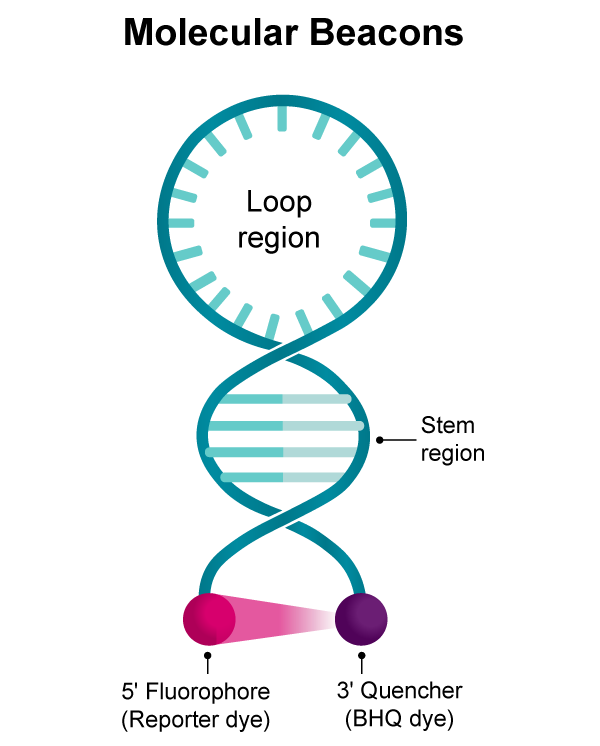Characterized by the formation of a stem-loop (hairpin) structure, Molecular Beacon Probes from LGC Biosearch Technologies are dual-labeled probes in which the reporter and quencher come into close proximity. The loop region hybridizes to the target sequence and the complementary sequences at both ends of the probe form the stem. This structure makes Molecular Beacons more discriminatory, allowing them to resolve different target sequences differing by a single nucleotide. In contrast to traditional dual-labeled probes, Molecular Beacons do not rely on probe hydrolysis from the 5' exonuclease activity of Taq polymerase to generate fluorescence, therefore, a post-PCR melt curve is possible.
Just like standard dual-labeled BHQ Probes it is possible to multiplex assays using Molecular Beacons. Multiplexing allows for the detection of several targets simultaneously using multiple spectrally resolved fluorescent probes.
 |
| Image Credit: LGC Biosearch Technologies |
Key advantages of Molecular Beacons:
- High signal-to-noise: There is excellent fluorophore quenching due to the proximity and direct energy transfer between reporter and quencher while in the closed hairpin conformation.
- Enhanced specificity: The stem-loop conformation offers high specificity, making molecular beacons ideal for SNP or mismatch discrimination.
- Melt curve analysis suitability: Since molecular beacons produce fluorescence under non-hydrolytic conditions by target hybridization, a post-PCR melt curve analysis is available.
Related info
Storage and handling of primers, custom oligos and BHQ Probes
Probe selection guide
Oligo toolbox
Spectral overlay tool